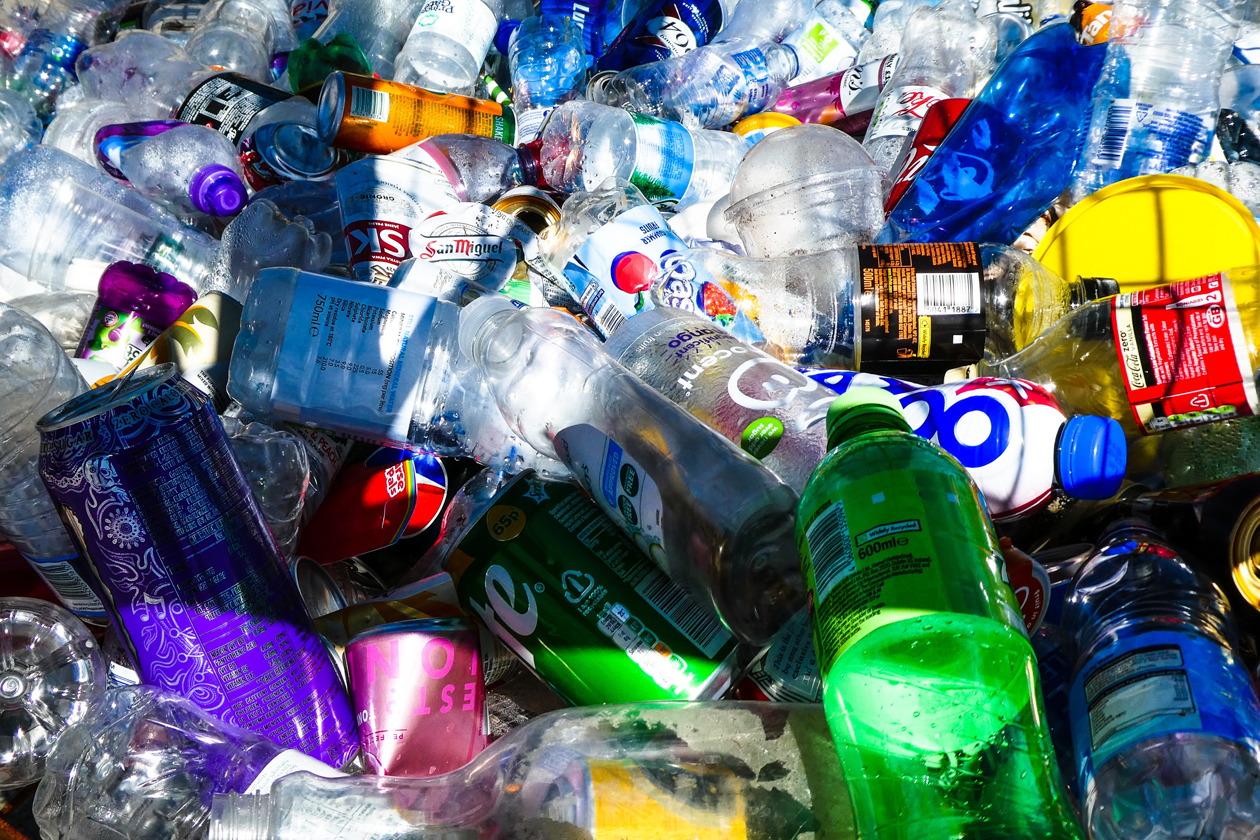
Canada to Ban the Import of Single-Use Plastic ItemsIn a news release on June 20, the Canadian government announced a ban on six kinds of single-use plastic. Banned single-use plastic items will include:
- Checkout bags;
- Cutlery;
- Food service ware made from or containing specified plastics that are difficult to recycle;
- Ring carriers;
- Stir sticks; and
- Straws, except for people who require them for medical or accessibility reasons.
The manufacture and import of these plastics will be banned in December 2022, however, the sale of the banned items will be allowed to continue until December 2023 in order to provide “businesses in Canada with enough time to transition and to deplete their existing stocks“. A ban on the export of the these items will take effect in 2025. An exception to this timeline will be made for ring carriers and flexible straws packaged with beverage containers, such as those that are attached to juice boxes. These will be banned for manufacture and import in June 2023 and for sale in June 2024. The extended deadline for these items is intended to accommodate the difficulty and complexity of “retooling manufacturing lines“ for these products. Further information about alternatives for each category of banned item is available in a guidance document online.
The ban is a joint initiative by Environment and Climate Change Canada and the Ministry of Health. The Canadian government estimates that the ban will result in the elimination of over 1.3 million tonnes of hard-to-recycle plastic waste and more than 22,000 tonnes of plastic pollution over the next ten years. In the news release, Environment and Climate Change Canada writes: “Canada remains steadfast in its commitments to demonstrate leadership and take strong action to reduce plastic pollution, protect biodiversity, and promote a healthy environment here at home and around the world.“
Some critics, however, have alleged that the ban does not go far enough. According to Greenpeace, the plastics covered by the ban only account for 5% of plastic waste produced in Canada.
Sarah King, Greenpeace Canada’s Head of Oceans & Plastics campaign, said in a statement: “The government needs to shift into high gear by expanding the ban list and cutting overall plastic production. Relying on recycling for the other 95 per cent is a denial of the scope of the crisis…
Greenpeace applauded the listing of plastic manufactured items under CEPA and the commitment to identify and ban problematic plastics in 2020, but things have worsened so much that this moment feels more desperate than congratulatory.”
Importers of these items will have until the end of this year to pivot to plastic-free or recyclable alternatives. As supply chains are currently still grappling with the effects of the COVID-19 pandemic and shipping delays are becoming increasingly common, importers would be well-advised to start sourcing alternatives as soon as possible.
By Robin Smith, M.A., CCS
– Robin is a trade industry professional based in Victoria, BC.
In a news release on June 20, the Canadian government announced a ban on six kinds of single-use plastic. Banned single-use plastic items will include:
- Checkout bags;
- Cutlery;
- Food service ware made from or containing specified plastics that are difficult to recycle;
- Ring carriers;
- Stir sticks; and
- Straws, except for people who require them for medical or accessibility reasons.
The manufacture and import of these plastics will be banned in December 2022, however, the sale of the banned items will be allowed to continue until December 2023 in order to provide “businesses in Canada with enough time to transition and to deplete their existing stocks“. A ban on the export of the these items will take effect in 2025. An exception to this timeline will be made for ring carriers and flexible straws packaged with beverage containers, such as those that are attached to juice boxes. These will be banned for manufacture and import in June 2023 and for sale in June 2024. The extended deadline for these items is intended to accommodate the difficulty and complexity of “retooling manufacturing lines“ for these products. Further information about alternatives for each category of banned item is available in a guidance document online.
The ban is a joint initiative by Environment and Climate Change Canada and the Ministry of Health. The Canadian government estimates that the ban will result in the elimination of over 1.3 million tonnes of hard-to-recycle plastic waste and more than 22,000 tonnes of plastic pollution over the next ten years. In the news release, Environment and Climate Change Canada writes: “Canada remains steadfast in its commitments to demonstrate leadership and take strong action to reduce plastic pollution, protect biodiversity, and promote a healthy environment here at home and around the world.“
Some critics, however, have alleged that the ban does not go far enough. According to Greenpeace, the plastics covered by the ban only account for 5% of plastic waste produced in Canada.
Sarah King, Greenpeace Canada’s Head of Oceans & Plastics campaign, said in a statement: “The government needs to shift into high gear by expanding the ban list and cutting overall plastic production. Relying on recycling for the other 95 per cent is a denial of the scope of the crisis…
Greenpeace applauded the listing of plastic manufactured items under CEPA and the commitment to identify and ban problematic plastics in 2020, but things have worsened so much that this moment feels more desperate than congratulatory.”
Importers of these items will have until the end of this year to pivot to plastic-free or recyclable alternatives. As supply chains are currently still grappling with the effects of the COVID-19 pandemic and shipping delays are becoming increasingly common, importers would be well-advised to start sourcing alternatives as soon as possible.
By Robin Smith, M.A., CCS
– Robin is a trade industry professional based in Victoria, BC.



